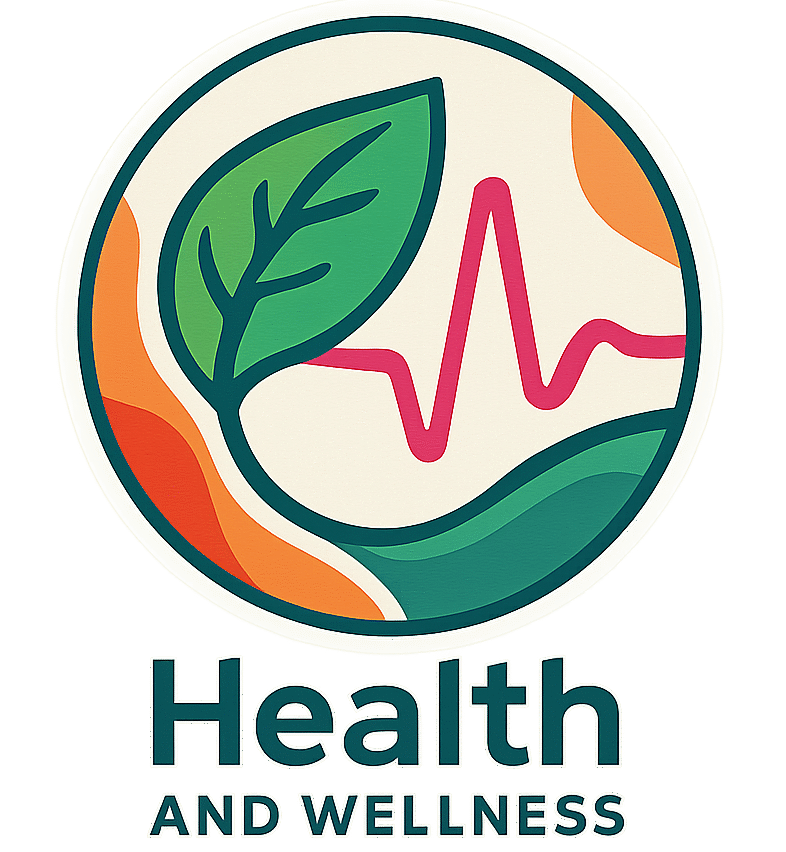If you’ve ever tried to manage weight with diet and exercise but found the results slow or hard to maintain, you’re definitely not alone. Prescription weight loss medications are now an option for people looking for a bit of extra help. These medications have become a pretty hot topic lately, so I’ve put together this guide to help you understand what’s out there, how they work, and what to keep in mind if you’re thinking about this path.

Understanding Weight Loss Medication: The Basics
Weight loss medication, sometimes called anti obesity drugs, isn’t a magic fix, but it can offer support alongside lifestyle changes. Their popularity has risen over the last decade thanks to new medications that offer more promising results and fewer unpleasant side effects. These medications are usually reserved for people with a body mass index (BMI) of 30 or higher, or 27 or higher if you have other health risks like diabetes or high blood pressure.
The world of weight loss medication has changed a lot. Years ago, options were limited, with bigger risks. Today, medications like GLP-1 agonists (for example, semaglutide and tirzepatide) are making real changes. The global market for these medications is expected to reach several billion dollars in value, reflecting how many people are now looking for extra weight management support.
Most weight loss meds are meant for longterm use and work best when paired with healthy habits. The goal is gradual, steady weight loss that sticks, rather than a quick drop that doesn’t last. Even modest weight loss through these medications can bring noticeable health benefits, like improved blood sugar, lowered blood pressure, and less stress on joints. That’s why doctors often consider more than just the number on the scale when discussing these options.
How Do Weight Loss Medications Work?
There’s no single way these medications help with weight loss. Each works differently, but they all help regulate appetite, absorption, or metabolism in some way. Here’s a quick breakdown of the main types you’ll likely hear about:
- Appetite Suppressants: These help you feel full sooner or reduce hunger signals. Phentermine is a well known example, often used short-term. Some people find these helpful for breaking habits of constant snacking or emotional eating.
- GLP-1 Receptor Agonists: Newer drugs like semaglutide (Wegovy, Ozempic) and tirzepatide (Mounjaro) mimic hormones involved in hunger and fullness, so you feel full faster and eat less. These are currently very popular because results tend to show up more quickly than with older drugs.
- Fat Absorption Blockers: Orlistat (Alli, Xenical) works by preventing your body from absorbing some of the fat from food, so you take in fewer calories. While effective, it can have stomach side effects and works best when you’re careful about fat intake.
- Combination Medications: Some meds, like Contrave (bupropionnaltrexone), blend different mechanisms to support both appetite and craving control. Others might pair appetite suppression with other health benefits, based on your needs.
The best medication for you depends on your medical history, health risks, and preferences. A healthcare provider can help tailor the approach, looking at what’s safe and effective for your situation.
First Steps Before Starting Weight Loss Medication
Weight loss medication isn’t the first line for everyone. Before you consider a prescription, healthcare providers usually recommend giving lifestyle changes like balanced eating and regular movement a fair shot. These medicines are an addon, not a replacement for healthier routines; they work best as part of an overall plan.
After a healthcare provider gives the green light, you’ll go through an evaluation that typically includes:
- Full Medical History: Reviewing your heart health, mental health, and any medications you’re currently taking.
- Lab Work: Checking blood sugar, cholesterol, and kidney or liver health to spot any underlying concerns that might affect your options.
- Discussion of Risks/Benefits: Talking honestly about possible side effects, medication costs, and what kind of results feel realistic. This is your chance to ask questions and share your goals.
Open, honest conversations with your provider smooth the way for safe and effective use of these medications. It’s important to have ongoing support and check ins as you move forward, both to track progress and catch any issues early.
Quick Guide: Steps to Get Started with Weight Loss Medication
Starting on weight loss medication is usually a step-by-step process involving both your provider and your own preparation. Here’s what it often looks like:
- Assess Your Eligibility: Calculate your BMI and check for related health issues, such as high blood pressure or prediabetes. If you meet the requirements, you can move forward.
- Consult a Medical Professional: Ask someone who can review your health history and explain your options, including which medications fit your lifestyle and preferences.
- Explore Medication Choices: Review which medications match your needs and goals, considering price, insurance coverage, and side effect profiles. Your provider can help break it down, so you aren’t left guessing.
- Develop a Healthy Routine: Keep building those healthy habits. Medication works best alongside better food choices, more movement, and better sleep habits, so find routines you can stick with.
- Monitor Side Effects and Progress: Track how you’re feeling, any issues, and your weight changes. Adjustments are a normal part of the process, and regular follow-ups help keep you on course.
Following this plan can help set reasonable expectations and increase your chances of seeing progress that actually lasts. Remember, consistent effort—even small steps—pays off over time.
What to Watch Out for When Considering Weight Loss Medication
Every medication comes with upsides and downsides. Weight loss meds are no different. Being aware of key points helps make for a smoother experience, and knowing what to expect keeps surprises to a minimum:
- Potential Side Effects: These range from mild (nausea, constipation, headache) to more serious ones like increased heart rate or mood changes. Your provider should give you a rundown of what’s possible based on your chosen medication and personal history.
- Long-Term Commitment: Most meds need to be taken consistently over time to get the full benefit. Weight often comes back if you stop without keeping healthy habits in play, so it’s a long-term mindset.
- Cost and Insurance: Some of the newest and most effective meds can be expensive, and coverage varies a lot across insurance plans. Cost shouldn’t catch you off guard, so always ask up front.
- Not for Everyone: Certain heart, liver, or kidney issues can make some medications unsafe. Sharing your full medical history matters—it shapes which choices are best for you.
Managing Side Effects
Mild stomach issues are common at the beginning, but these often ease up with time as your body adjusts. Eating smaller meals and tuning into your body’s signals can cut discomfort. If problems stick around, stay in contact with your healthcare provider to spot issues before they worsen. Open communication can make it much easier to find workable solutions, like switching medications or adjusting the dose.
Affordability and Coverage
Brandname weight loss meds like Wegovy can be really pricey without insurance. Many people are surprised to find insurance might not cover these meds for weight alone. You might need an additional health reason, such as diabetes or sleep apnea, to qualify. Checking your coverage or asking your provider about generic or alternative options can save money and keep the process low stress. Some drug manufacturers also offer discount programs—that’s worth checking out as well.
Advanced Tips for Making Medication Work for You
Getting the most out of medication isn’t just about taking a daily pill or shot. Pairing it with other efforts gives a boost both to your outcome and to how good you feel about the process. Here are a few strategies that seem to work well for many:
Track Habits and Results: Journaling or using an app to monitor how you eat, move, and feel helps you and your provider spot trends or issues early. Even jotting down quick notes about your mood and cravings can help bring clarity.
Emphasize Sleep and Stress: Medication can curb hunger, but quality sleep and manageable stress levels make losing weight feel a lot less overwhelming. Assess your routines—sometimes small tweaks, like a set bedtime, can lead to better weight loss and improved energy.
Get Support if Needed: Joining a group or talking with a dietitian keeps motivation high, answers your questions, and provides useful tips for getting through challenges. Community support—whether in person or online—can make a real difference.
Remember, being consistent and flexible is key. Progress won’t always move in a straight upward line, so patience is required. Minor setbacks are a normal part of making big changes, but sticking with the plan keeps you moving forward.
Things Beginners Often Ask About Weight Loss Medication
Here are some of the top questions people tend to ask when thinking about starting medication for weight loss:
Question: How much weight can I expect to lose?
Answer: This varies by medication, commitment, and your unique physiology. Most people lose 5-10% of their starting weight, though some see more—especially if you’re able to layer medication with new habits and regular activity. Progress happens over several months, not weeks.
Question: Are these medications safe long-term?
Answer: For most folks, yes; especially with regular check ins. Some side effects may stick around, but most can be managed or minimized. Research into the long term use of the newer drugs is still ongoing, so staying in touch with your healthcare team is important for best results.
Question: Will I need to take medication forever?
Answer: Some people need to stay on medication to maintain weight loss, while others gradually taper off as healthier habits stick. This decision is individual and benefits from regular input from your provider to weigh the risks and benefits as your needs change.
Question: Can I stop and restart the medication?
Answer: Sometimes, but always talk it over with your provider. Stopping suddenly can cause weight regain, and your body might respond a bit differently if you resume. Mapping out a plan with your healthcare team helps avoid these issues.
Real-World Impact of Weight Loss Medicine
People who use weight loss meds often share that having a medical tool takes some of the daily stress off food decisions and boosts confidence. Others notice improvements in blood sugar, blood pressure, or just moving easier after shedding some pounds. For example, someone who struggled with cravings might find these meds quiet the constant urge, making it easier to keep up with healthy plans. That sense of relief can make all the difference for people who’ve tried repeatedly with little success before.
It’s worth repeating: weight loss is very personal. What works for one person might not work for another. Medication can be an important tool, but it’s just one part of a bigger plan that includes selfcare, support, and lasting patience. Building a support system—whether through friends, family, or online communities—can make it easier to ride out challenges and celebrate even the smallest wins. Bottom line, no matter what path you take, the key is finding a plan that fits your life and makes you feel your best.
